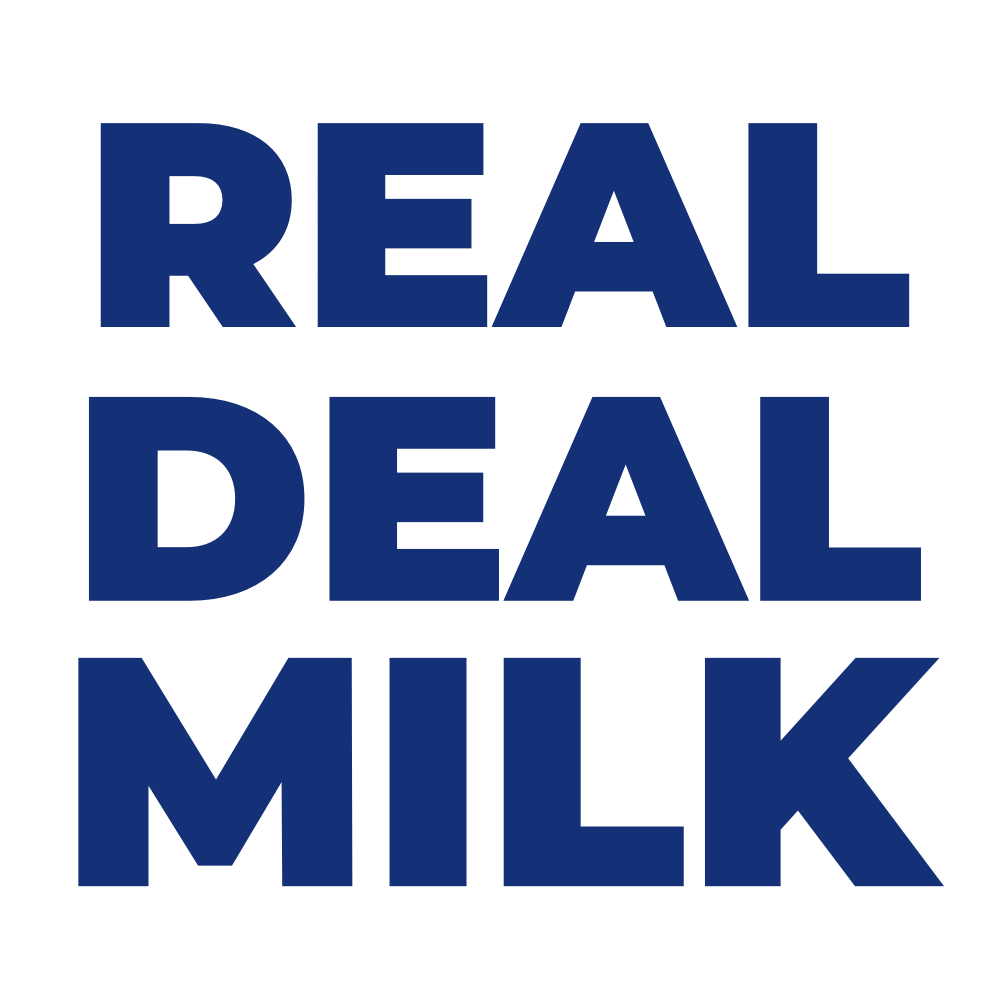The nutrients of plant-based milk
Nuts, seeds, pulses, they’re all being milked.
Cow’s milk is renowned for its high nutritional value, but just because milk is in the name doesn’t mean plant milks are always capable of reaching the high standard. Some plant-based milks are fortified, others are left without micronutrients. Some have sugar added, others do not.
With all the alternative milk choices, you might struggle to find a nutritional profile as good as the OG cow’s milk. That was until Real Deal Milk joined the scene, providing dairy products with the nutritional qualifications to rival cow’s milk.
The nutrient profile of plant-based milks
Pick your plant, and the nutritional profile will follow.
Cow’s milk options are limited. Full-fat, semi-skimmed or skimmed. Depending on the colour bottle top you choose, the fat and calories will vary; the other nutrients remain pretty much the same. But plant-based milks do not replicate cow’s milk; depending on which you opt for, the nutrition can vary dramatically.
Protein is a cow’s milk guarantee, immediately assured, it will be a good source that contains all the essential amino acids your body needs. Soya is one of the only plant milks that can reach a similar amount of protein; the other options lack protein content and impart a different amino acid profile, deficient in certain essential amino acids (McClements, DJ. et al. 2019).
In the case of almonds, the nuts themselves are full of protein but this is not transferred into the milk. Almond milk, along with coconut and rice, also provide higher sugar content (McClements, DJ. et al . 2019). Rice milk brings up the tail end of the pack, with its elevated sugar on top of the little protein and little fat supplied (Vanga, SK. and Raghavan, V. 2018).
The milk add-ons
This choice lies with the manufacturers.
The plant of origin will impact the milk’s nutrition, but next up comes the decision; to add or not to add? Many plant milks are sweetened in an attempt to increase consumers' acceptance. However, this sweetness also ups the amount of sugar present in the milk, bringing with it the negative consequences of high sugar consumption (Aydar, EF. et al. 2020).
Another addition among plant milks is fortification. Some plant-based milks are fortified with micronutrients such as calcium and B12, whilst others are left without. So continually opting for milks without fortification, can result in decreased intakes of essential micronutrients such as calcium and B12.
The health consequences
Milk alternatives make up a significant swap in a vegan diet.
The consequences of this swap may contribute to the risk of micronutrient deficiencies, for example, a lack of calcium or vitamin B12, as they’re most commonly found in animal products (Sakkas, H. et al. 2020). With children, it is imperative to ensure they are not suffering from any dietary deficiencies as it could be restrictive in their development. Research has shown children following a vegan diet to be three times more likely to be deficient in vitamin B12, and they were on average 3cm shorter, with a 4-6% lower bone mineral content (UCL. 2021).
It is, therefore, our top priority to ensure no one is missing out on essential micronutrients, because they’re making the environmentally-conscious decision.
Plant-based milk doesn’t tick all the nutritional boxes that cow’s milk does. The variation in nutritional profiles can confuse consumers who assume the nutrients in each will be uniform. Real Deal Milk slots in perfectly as a solution. Providing a vegan alternative that mirrors milk's nutritional profile, so consumers can be certain that all the nutrients they trust to milk, will be present.
References
Aydar, EF. et al . 2020. Plant-based milk substitutes; bioactive compounds, conventional and novel processes, bioavailability studies, and health effects. Journal of functional foods, 20. https://doi.org/10.1016/j.jff.2020.103975
Iguacel, I. et al. 2018. Veganism, vegetarianism, bone mineral density, and fracture risk: a systematic review and meta-analysis. Nutrition Reviews, 77(1), 1-18. https://doi.org/10.1093/nutrit/nuy045
McClements, DJ. et al. 2019. Plant-based milks: a review of the science underpinning their design, fabrication, and performance. Comprehensive reviews in food science and food safety, 18(6), 2047-2067. https://doi.org/10.1111/1541-4337.12505
Sakkas, H. et al. 2020. Nutritional Status and the Influence of the Vegan Diet on the Gut Microbiota and Human Health. Medicina, 52(2), 88. doi: 10.3390/medicina56020088
UCL. 2021. Vegan diets in children may bring heart benefits but pose growth risks. https://www.ucl.ac.uk/child-health/news/2021/jun/vegan-diets-children-may-bring-heart-benefits-pose-growth-risks
Vanga, SK. and Raghavan, V. 2018. How well do plant based alternatives fare nutritionally compared to cow’s milk? Journal of food science and technology, 55(1), 10-20. doi: 10.1007/s13197-017-2915-y



